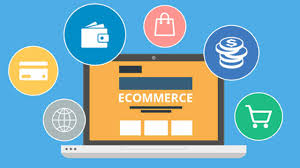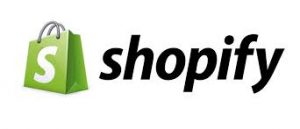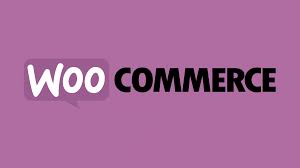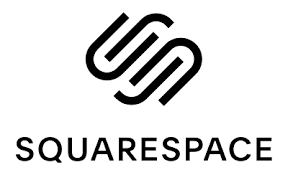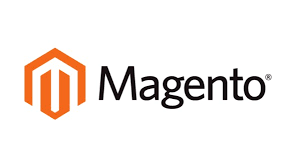Before we get to the actual list of 15 business ideas, let’s go over how to proceed once you find a business that appeals to you.
Write out what your goals are:
- What level of income are you looking for?
- Part-time or full-time?
- How much time can you invest each week?
- What skills do you need to learn?
- How will you learn them? And how long will it take you?
- Is a financial investment required? If so how much and how will you generate that start-up fund?
- Make out time Don’t worry if you aren’t sure, just try your best and put something on paper. You can always adjust along the way.
Your progress will be very different when you know exactly where you are going and how you plan to get there, rather than just starting “somewhere” and hoping it will “somehow” happen.
Keep reviewing that plan each week and make adjustments.
Set reasonable expectations in the beginning and work out a clear action plan on how you can meet those expectations.
For example: if you are aiming for an extra N100,000 ($200) per month, calculate how many hours you will have to work per month, or how many products you would have to sell each month to reach that number.
Then, break it down per day and you will have a much clearer path to reaching your goal.
A successful business starts with:
- Thorough research to find a profitable market and understanding who your audience
- Next, a detailed action plan – and finally:
- Taking action!
Learn from the Best
If you want to greatly speed up the process, learn from an entrepreneur in your field who has been very successful.
Rather than trying things that won’t work and spending months and years finding a way that does work, simply follow the lead of someone who has already figured it all out.
In other words, invest in good training!
You can ask questions and usually join a community (Facebook group, Whatsapp group) of fellow female entrepreneurs for mutual support and networking.
Branding
The planning and research phase also includes finding a profitable market and narrowing down your specific audience.
You will have much greater success in a very specialized market that you master.
People love to hire specialists and buy specialty products, so spend time researching that part thoroughly.
It will be one of the most important decisions in your business and will have a great influence on your success.
Research online and find out what areas are already over-saturated vs. areas that pose a great need.
Pick those markets and specialize there. Just make sure there is enough interest (i.e potential customers and clients).
This research might take a few days or even a week – but it will make a tremendous difference in your long term success, so really spend time on this and remain flexible along the way.
Your Ideal Customer
Once you find your market, define your ideal customer.
You should have a pretty good idea of who your audience is.
Once you have defined your ideal customer, tailor your marketing to that person.
Define your UVP (= “Unique Value Proposition”)
This is another important piece in your business plan. What is it that makes your service or product unique?
Why should people come to you, instead of the millions of others with similar businesses?
Put yourself in the shoes of your customer.
What’s in it for them?
The more specific and convincing you can answer that question, the more successful you will be.
Your clients are not interested in a list of features of your product/service, but only in what it does for them. How it improves their lives and solves their problems and frustrations.
How will their lives be different if they buy your products or use your service?
Focus on them – and what benefits you can provide to them – and then over-deliver!
Separate yourself from the Crowd
Here are 3 strategies that can jump-start your business and greatly increase your reach and audience. Pick at least one of them and build a following. It will make a huge difference in your business.
Most successful entrepreneurs combine several of these platforms, but start with one to help your business grow a lot more quickly:
#1 – Write a Bestselling Kindle Book on your Topic

A great way to build a reputation as an expert in your market and create a passive income stream on the side is Kindle Publishing.
Being a published author – and possibly a bestselling author – will give you instant credibility and prestige and separate you from the crowd.
If you use Amazon’s Kindle Publishing option, you can also generate a constant stream of potential clients and customers – pretty much automatically. Amazon basically pay you to build a customer list!
You do not need a traditional publisher, a large following or be experienced in writing books. If you wish to publish on Amazon and need guidance and advice, send an email to info@creative.com.ng
#2 – Set Up A Youtube Channel

Youtube is a search engine – in fact, the 2nd most popular search engine after Google – and Youtube videos show up in Google searches when people try to find products or professional services.
If you know how to rank and build a solid following on Youtube, you can enjoy the following 3 massive benefits:
A)- Have potential customers and clients find you through Google searches. No need to pay for ads, just learn how to rank and get new customers automatically
B)- Establish yourself as an expert in your field
C)- Create additional passive income through the many monetizing options Youtube presents.
#3 – Become an Influential Blogger
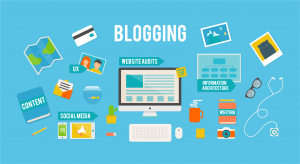
Whatever business you run, you should have a website and that includes a blog, also for Google ranking purposes.
And speaking of ranking – you should have at least a basic understanding of SEO (search engine optimization).
Creative Fountain can help you build a website and optimize it for ranking high on Google. For more information, send an email to info@creative.com.ng .
Marketing

No matter what business you choose to run, whether selling a product or service, online or offline, you will need to actively and effectively market your business. Otherwise, you might as well not start at all.
This is where most female-owned businesses fail. Marketing is an area that many people are uncomfortable with and even scared of.
It’s easier than you think. You just have to learn how, and then apply consistently.
Knowing these techniques will put you way ahead of the game and allow you to make your goals a reality.
We already mentioned the importance of having a website and the marketing strategy called SEO.
We also mentioned Youtube and Kindle Publishing as quick and highly effective ways to attract customers and clients.
Social Media Marketing is another important area. Facebook and Instagram are well suited to marketing products.
Knowledge is Power
This eternal truth very much applies to entrepreneurship and starting a business. It’s about working smart, not working endless hours fighting competitors and getting nowhere.
This post will give you ideas and resources.
Then it’s up to you to get proper training and take it to the next level. Are you ready?
Let’s begin.
Arts & Crafts

While selling your arts and crafts in local shops is a great way to start, you greatly increase your chances (and audience) by selling online.
#1 – Florist: Florists make and sell artistic arrangements of flowers and plants, such as bouquets and wreaths. They are sometimes called floral designers.
#2 – Knitting: Knitting is a method by which yarn is manipulated to create a textile or fabric. It may be done by hand or machine and is used to produce scarves, caps, hats, baby slippers, pillow covers, blankets, bags, gloves, toys, ties, sweaters and many other items.
#3 – Jewelry Designer: Jewelry designers work with precious metals, diamonds, beads and gemstones to create wearable pieces of art. A jewelry designer may create one-of-a-kind pieces for high-end jewelers or an entire line for a mass-market fashion designer.
#4 – Cake Decorator: Cake decorators make cakes that are visually appealing as well as delicious. These could be wedding cakes, birthday cakes, cupcakes or commercially available cakes sold to stores.
#5 – Organic Cosmetics: You can produce and sell your own line of moisturizers, face scrubs and creams using herbs and oils.
#6 – Gift Baskets: A gift basket may contain fruit, tea, wine, crackers, jam and other canned foods. It is usually delivered to the recipient at their home or workplace as a thank-you or congratulatory gift, or for special occasions, such as Christmas and Easter holidays.
Beauty

#7 – Mobile Make-up Artist: Mobile makeup artists are like other traditional makeup artists. The only difference is that the mobile makeup artist goes to the client’s home, office, hotel or event venue, to perform the needed makeup services.
#8 – Mobile Nail Salon: As a mobile nail technician, your job is to move around a given area and deliver services such as manicure or pedicure treatments, hand and foot massages, and nail care.
#9 – Massage Therapist: Massage therapists treat clients by using touch to manipulate the muscles and other soft tissues of the body. With their
touch, therapists relieve pain, help heal injuries, improve circulation, relieve stress, increase relaxation, and aid in the general wellness of clients.
#10 – Mobile Hair Stylist: A mobile hairstylist or hairdresser goes to clients to cut or style their hair, using a combination of hair coloring, haircutting, and hair texturing techniques.
#11 – Personal Fitness Coach: A personal fitness coach works with clients, either in a small group or one-on-one, to improve their muscular endurance, strengthen their cardiovascular capabilities, and increase their physical flexibility.
#12 – Interior Decorator: Interior decorators help to determine the look and feel of a client’s home by selecting and placing decorative elements such as paint, textiles, and furniture.
Services

#13 – Event Planner: An event planner is responsible for organizing corporate or private events for companies or individuals. Her duties include meeting with clients to discuss their needs, maintaining partnerships with vendors and caterers and overseeing the set-up, execution and cleanup of events.
#14 – Meal Delivery Service: A meal delivery service is a service that sends fresh or frozen, prepared meals and snacks to customers’ homes and offices.
#15 – Online Cooking School: An online cooking school is a virtual class on the Internet where you can teach various cooking techniques or cooking styles from the comfort of your own kitchen.

